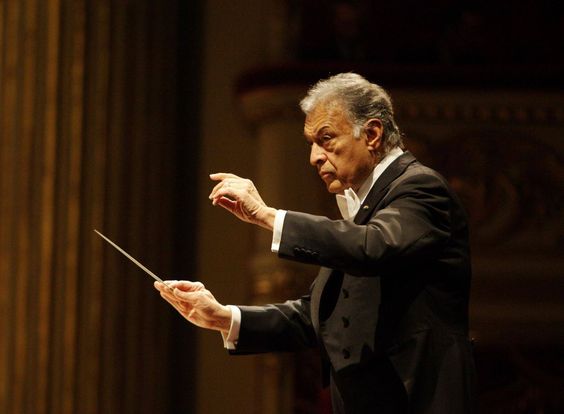Every country has its own traditions. Like we Indians have Diwali — festival of lights, Holi — festival of colours, festival of kites, likewise Czech Republic celebrates spring festival in their churches every year. They end the festival with a symphony of their greatest maestro Beethoven to be performed by different musicians from across the globe each year.
In 1963, Zubin Mehta, Indian conductor of Western and Eastern classical music, was invited to perform. He had to perform a symphony of Beethovan in the church. Zubin had never done anything like that ever before. He had performed in many different countries around the world but was not familiar with the expectations of Czech people and so he was worried whether he would be able to perform up to their expectations.
He reached the Church, it was packed. There was a pin drop silence. The political, business leaders and celebrities occupied the front rows. Behind them were around 8000 people standing in order. Zubin’s accompanist whispered in his ear, “Do you know that here, the audience is not allowed to applaud during or after the performance in the Church?” Clapping in Church was against the Czech tradition.
Zubin was further confused and tensed. He recalled that his musicians were fumbling during rehearsals and here, if audience would not even acknowledge their performance, how would he and his musicians know if they were performing well and if their music was appealing to the hearts of the listeners? As we know, artists thrive on the applause of their audience. He started losing confidence.
He then realised that there was no reason to worry. He was to perform a symphony of the Great Beethoven, which in itself was a morale booster and exciting. It was like Arjun getting agonized in the middle of the battle field, it can happen to anyone of us at any time during our lives, and we have to work towards defeating that flux ourselves. We only have to be our Krishna and our Charioteer. In those deemed moments, Zubin gathered himself and his confidence by just thinking about Beethoven, his mesmerizing music, and his heart was filled with ecstasy. He saw a divine light within him, as now he did not need any outside applause or acknowledgement. He could sense that whatever he was to perform today would be memorable.
That’s what happened. The performance ended, and the entire audience rushed outside the church. As Zubin walked towards his car, he saw the ocean of spectators, each and every one who was inside the Church hall was waiting for him outside. They all started clapping thunderously. Zubin raised his hand to acknowledge the honour.
He sat in his car. Driver started the car…driver could see from the rear mirror, tears rolling down from the eyes of the famous Maestro Zubin Mehta.
Dr. Suresh Dalal, one of the great literary geniuses of Gujarati literature said that he could never forget the anecdote after reading it once. He said that one has to be a self-believer and a self-critic. This story also teaches us that Excellence will always be appreciated. The audience refrained from appreciating the performance through applause because of the tradition but outside the Church they magnanimously applauded as the performance touched their hearts. And when truly great artists receive such a whole-hearted response, they would naturally reciprocate with joy and tears of humble gratitude. These tears had the perspiration of the artist and ability to live up to any challenge.
[Zhalak-Panchami by Dr. Suresh Dalal page 101–102]
— — — — — — — — — — — — — — — — –
खुशियां उगे न खेत में, मिले न हाट बाजार ।
अपने अंदर ढूंढ लो, भरा अतुल भंडार ।।
Khushiyaan ooge na khet me, mile na haat bazaar,
apane andar dhundh lo, bhara atul bhandar.
Joy doesn’t grow in fields nor found in markets,
search within yourself as there is plenty inside.

